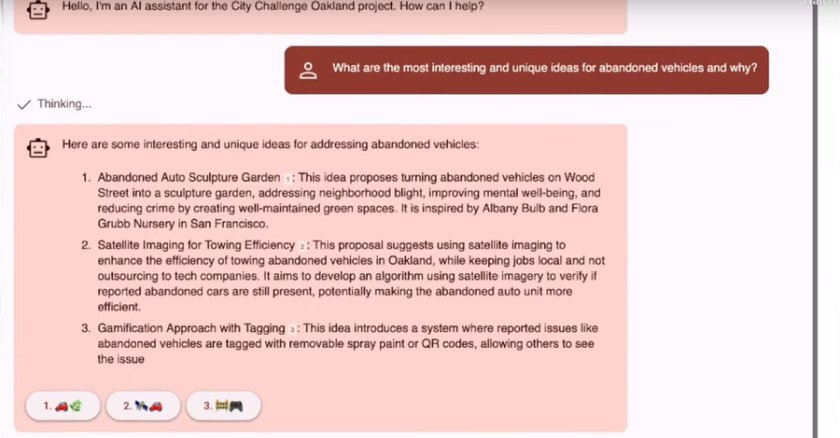
(David Kidd)
In Brief:
This past February a dozen or so Virginia state legislators, aides and interested parties met via Zoom with representatives from the Policing Project, a New York University School of Law group dedicated to improving police accountability and community engagement. They were invited to share their thoughts about the use of technology in law enforcement with members of the House of Delegates’ Technology and Innovation Caucus.
“We don't view policing technology as inherently good or inherently bad,” said Max Isaacs, a lawyer at the Policing Project. “We see a lot of potential benefits in policing technology … But people have real concerns about police and tech. They're concerned about privacy. They're concerned about bias and misuse and a whole slew of issues.” Isaacs and his colleagues went on to address facial recognition, robotics and the data collected by automatic license plate readers. “Policing tech is outpacing regulation,” he said. “We're seeing agencies deploy technologies before there are real rules in place to govern their use.”
In Love With Technology
Michelle Maldonado likes to say that she “grew up professionally in tech.” Her district is in Northern Virginia — an area awash with technology companies — about 30 miles west of Washington, D.C. She arrived in 1993 by way of Massachusetts, small-town Texas and New York City, having majored in Latin American studies and Spanish literature at Barnard College at Columbia University. Once established in Virginia, she earned a law degree from George Washington University and found work doing government contracts before eventually ending up as a tech lawyer at AOL, the Internet service provider. “I then switched and moved to the business side,” she says. “And I have loved technology forever since forever.”
Building on the experience she gained with seven years at AOL and another 10 years working in online education, Maldonado started her own company, Lucenscia, a leadership development and business strategy firm. “What I was noticing is that people were really struggling personally, while trying to be the best leaders they could be,” she says. “But they didn't have the skill set or the guidance or the tools to address the things that they needed to address.”
A Call to Action
Running for office had never occurred to Maldonado until three events convinced her it was time to take action. The first was the crisis at the border. “What was particularly disturbing to me was the tearing away of children from their parents,” she says. “How did we allow this to happen?” The second was the killing of George Floyd and Breonna Taylor at the hands of police. “Like everyone else, I was watching what was happening, the hyper division that I was seeing grow. I thought, ‘Where are the people that are courageous enough to stand in the middle?’”
Then Jan. 6 happened. “I had this thought that, maybe I’m one of those people that I keep asking for,” Maldonado says. “But I don't even like politics. How could I do this? I'm not the one.”
Encouraged by friends and realizing that her professional skills might be transferable to government, she entered the race for state delegate two weeks before the filing deadline and defeated the incumbent, Del. Lee Carter, in the Democratic primary before winning the general election in November 2021. Following his loss, Carter let it be known that he’d had enough of politics. “This job has made me miserable for the last four years,” he said in a post-election statement. “The constant assassination threats and harassment were terrible for my family and my health. I'm relieved to say that I've done my part, and now it's someone else's turn.”

Bridging the Partisan Divide
As a new legislator, Maldonado was chagrined to learn that the partisan divide was real. “I've had some really great opportunities and outcomes from working across the aisle,” she says. “But there is [pressure] for parties to vote a certain way so they can hold their blocs and hold their voting power. And while I understand it, that doesn't always produce the right outcome.” Learning the ins and outs of the legislative body was time consuming, but building relationships on both sides of the aisle became a priority.
Now in the second year of her first term in office, Maldonado is often forced to put her business aside so that she can focus on her job as an elected official. “I'm still learning how to balance the two,” she says. “I need to work to keep a roof over my head. And I think a lot of people don't know that elected officials don't get a lot of money. We get paid for what they call part-time legislation. But we're working all year long.”
Choosing to forgo office space, the freshman delegate takes meetings in local restaurants and coffee shops, preferring instead to use rent money for community events, town halls and listening sessions. As of early July, an opponent has yet to be named for the upcoming November election. “The reality is that I work really well across party lines,” she says. “And people not in my own party have supported me.”
Filling a Tech Void
Technology issues were an inescapable part of Maldonado’s first year in office. In one instance, delegates were divided over a contentious bill on facial recognition. “With all the misinformation and the misunderstanding about what the technology was, and fears about what it could do, it became abundantly clear that there weren't enough people in our House that understood technology,” she says. “And that's not a criticism. It's an observation. Most legislators are generalists.”
Sensing a need for more tech-related resources in the House of Delegates, Maldonado asked around, gauging interest among her colleagues and the leadership about forming a tech caucus. Republican freshman Del. Karen Greenhalgh readily agreed to serve as vice chair of the bipartisan group. “It was a great idea,” she says. “Because we have people from so many different areas. We have doctors, lawyers, pharmacists and farmers, and you can't be an expert in everything. When these tech issues come up, the caucus is a valuable resource for information. And that's the purpose of our Tech and Innovation Caucus, to get that information out there for us to use.”
Del. Greenhalgh has a business background in health and cybersecurity. “Technology in the health-care field is growing,” she says. “The vulnerabilities and concerns about privacy fit right in with what our caucus is working on.”

(David Kidd)
Making Informed Decisions
When in session, the dozen-plus caucus members meet in a featureless conference room across the street from Thomas Jefferson’s Virginia Capitol. In-person and out-of-session virtual meetings are almost always open and streamed live with the video and any related resources available to all of the legislators.
Interest in the Technology and Innovation Caucus meetings has continued to grow since its inception. A recent discussion on facial recognition technology resulted in a packed conference that was wall to wall with delegates, lobbyists and constituents. “We probably had about 40 or 50 people, which is a lot,” Maldonado says. “Usually, when you have a caucus meeting, you might get four people.”
Information made available by the tech caucus has proven invaluable to delegates when writing and voting on bills. Vice Chair Greenhalgh is quick to cite the time when automatic license plate readers were being debated. “I don't think anyone in the House of Delegates had first-hand information,” she says. “And Del. Maldonado found people who were for and against, to come and give their views and explain from a technological perspective why they held those views. We share information rather than positions. That way, it's useful to everyone.”
No Time to Wait
This month, Del. Maldonado will introduce the “AI technology initiative,” an outgrowth of the Technology and Innovation Caucus. The new group includes members of the tech caucus, representatives from industry including Apple and Amazon, educators, and law enforcement. “The goal is to first look at the use of AI in government decision-making infrastructure, processes and systems,” Maldonado says. “And then taking those findings and [using them] in the 2024 legislative session.”
Not all of the participants will be able to attend in person, so Zoom meetings will originate from the same Richmond conference room used by the tech caucus. “What will be great is that people will see that there are Republicans and Democrats working on this thing. And so, no party owns this,” she says.
“Technology moves at the speed of light,” says Del. Maldonado. “Policy and legislation move at the speed of molasses. We have to start soon. Now.”

(David Kidd)
Related Articles













